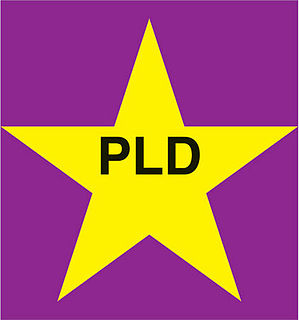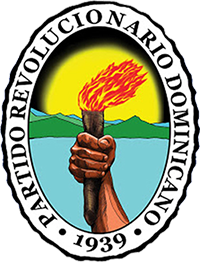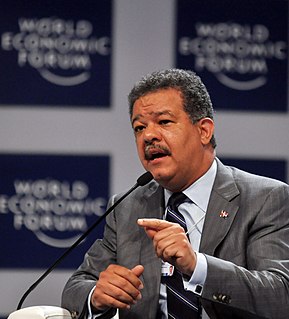
The Politics of Mexico take place in a framework of a federal presidential representative democratic republic whose government is based on a congressional system, whereby the President of Mexico is both head of state and head of government, and of a multi-party system. The federal government represents the United Mexican States and is divided into three branches: executive, legislative and judicial, Anahis term as established by the Political Constitution of the United Mexican States, published in 1917. The constituent states of the federation must also have a republican form of government based on a congressional system as established by their respective constitutions.

The Dominican Republic is a representative democracy, where the President of the Dominican Republic functions as both the head of the government and head of the multi-party system. Executive power is exercised by the government. Legislative power is vested in the bicameral National Congress. The Judiciary is independent of the executive and the legislature.

Juan Emilio Bosch Gaviño was a Dominican politician, historian, short story writer, essayist, educator, and the first democratically elected president of the Dominican Republic for a brief time in 1963. Previously, he had been the leader of the Dominican opposition in exile to the dictatorial regime of Rafael Trujillo for over 25 years. To this day he is remembered as an honest politician and regarded as one of the most prominent writers in Dominican literature. He founded both the Dominican Revolutionary Party (PRD) in 1939 and the Dominican Liberation Party (PLD) in 1973.
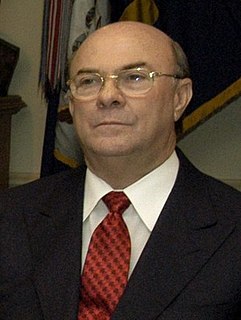
Rafael Hipólito Mejía Domínguez, is a Dominican politician who served as President of the Dominican Republic from 2000 to 2004.

Danilo Medina Sánchez is a Dominican politician and the current President of the Dominican Republic, since 2012.
José Francisco Peña Gómez was a politician from the Dominican Republic. He was the leader of the Dominican Revolutionary Party (PRD), a three-time candidate for president of the Dominican Republic and former Mayor of Santo Domingo. He is considered, along with Joaquín Balaguer and Juan Bosch, as one of the most prominent Dominican political figures of the 20th century. His widow Peggy Cabral is currently one of the two co-Presidents of the PRD.
Adrien Houngbédji is a Beninese politician and the leader of the Democratic Renewal Party, one of Benin's main political parties. He was President of the National Assembly of Benin from 1991 to 1995, Prime Minister of Benin from 1996 to 1998, and President of the National Assembly again from 1999 to 2003. Beginning in 1991, he stood repeatedly as a presidential candidate; he placed second in 2006, but was heavily defeated by Yayi Boni in a second round of voting. Since 2015, he has served for a third time as President of the National Assembly.

Juan Miguel "Migz" Fernández Zubiri is a Filipino businessman and politician who served three consecutive terms in the Philippine House of Representatives for the third district of Bukidnon and as a senator. In the 14th Congress of the Philippine Senate, he became Senate Majority Leader, replacing Senator Francis Pangilinan on November 17, 2008. During his Majority Leadership, the Senate passed a record 650 bills. In the 17th Congress, he was once again elected as Senate Majority Leader on May 21, 2018, filling the vacancy left by elected Senate President Vicente Sotto III.

General elections to elect the president, Assembly of the Republic, and Provincial Assemblies was held in Mozambique on 28 October 2009. Incumbent President Armando Guebuza ran for re-election as the FRELIMO candidate; he was challenged by opposition leader Afonso Dhlakama, who had stood as the RENAMO candidate in every presidential election since 1994. Also standing were Daviz Simango, the Mayor of Beira, who was a RENAMO member before founding his own party, the Democratic Movement of Mozambique (MDM), earlier in 2009.
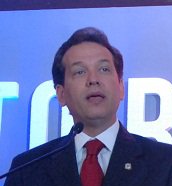
Víctor Orlando Bisonó Haza nicknamed Ito Bisonó, is a Dominican politician, business administration and current member of the Chamber of Deputies of the Dominican Republic representing the 2nd circunscription of the National District since the year 2002. Bisonó is a member of the Social Christian Reformist Party, and he has been Second Vice President of the Dominican-Haitian Chamber of Commerce.

Presidential elections were held in the Dominican Republic on 16 May 2000. Hipólito Mejía of the Dominican Revolutionary Party (PRD) won the election, defeating Danilo Medina of the Dominican Liberation Party (PLD) and former president Joaquín Balaguer of the Social Christian Reformist Party (PRSC). Voter turnout was 76.1%.
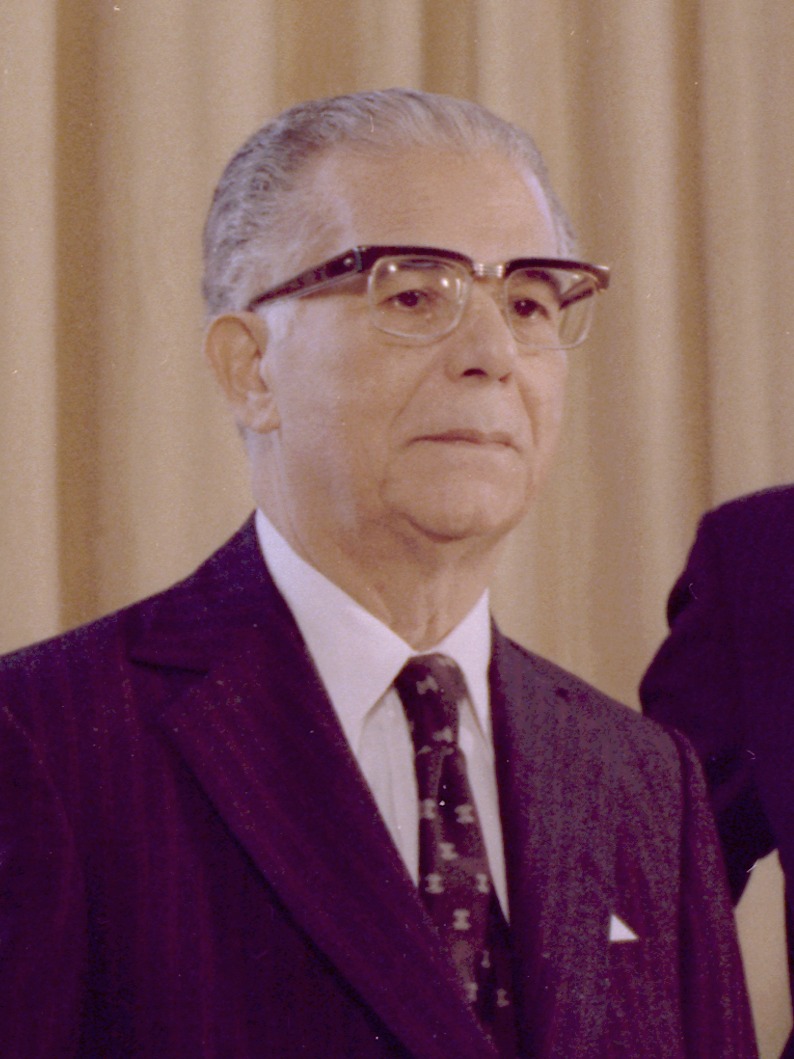
General elections were held in the Dominican Republic on 16 May 1986. Joaquín Balaguer of the Social Christian Reformist Party won the presidential election, whilst the PRSC-led alliance won the Congressional elections. Voter turnout was 72.2%.

Presidential elections were held in the Dominican Republic on 20 May 2012. They were the fifth quadrennial elections for the presidency and vice-presidency since 1998, when a change in the electoral law separated the presidential from the congressional and municipal elections.

Elections were held in the Democratic Republic of the Congo for 108 seats of the country's Senate on 14 March 2019. Former DRC President Joseph Kabila, who stepped down from office in January 2019 following the inauguration of the recently elected Félix Tshisekedi, has also joined the upper house of the legislature as a senator for life, for a total of 109 seats.
General elections were held in Dominican Republic on 15 May 2016 to elect a president, vice-president and the Congress, as well as 20 deputies to the Central American Parliament, municipal councils, mayors and vice mayors. On 15 May 2015 Roberto Rosario, president of the Central Electoral Board, said that there would be about 4,300 seats up for election in the "most complex elections in history".

Miguel Octavio Vargas Maldonado is a civil engineer, businessman, and politician from the Dominican Republic. He is the chairman of the Dominican Revolutionary Party, a minority party allied with the PLD government and current Minister of Foreign Affairs.



